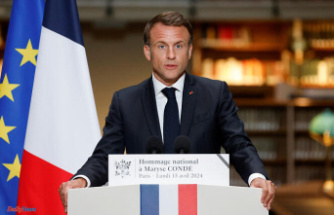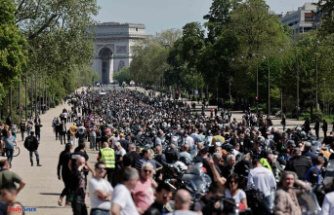Observers assume that North Korea is preparing the first nuclear test in around five years. State media are now saying a new law will allow a first strike with nuclear weapons. In addition, the export of the technology to other countries should be prohibited.
North Korea has legislated a pre-emptive nuclear strike. At the same time, the isolated country classified its status as a nuclear weapons state as "irreversible", as reported by state media. The announcement came amid rising tensions between North and South Korea. According to North Korea's state news agency KCNA, the new law allows Pyongyang to "automatically" carry out a nuclear first strike and "immediately destroy enemy forces" if another state poses an imminent threat to North Korea. It also prohibits any transfer of nuclear weapons or nuclear weapons technology to other countries.
"This is an irrevocable line drawn so that there will be no negotiations about our nuclear weapons," North Korean ruler Kim Jong Un told state media at the North Korean Supreme People's Assembly. With the new law, "our country's status as a nuclear weapons state has become irreversible," he is quoted as saying. Since January, North Korea has conducted a slew of weapons tests, including launching an ICBM. At the same time, North Korea blamed the hostile South Korea for the corona outbreak in the isolated country. North Korea is preparing for its first nuclear test since 2017, observers say.
Just a day earlier, South Korea had offered talks with North Korea for the first time since North Korean President Yoon Suk-yeol took office in May to discuss the reunification of families separated by the Korean War. The Minister for Reunification, responsible for inter-Korean affairs, Kwon Young-se, announced this at a press conference. The government in Seoul is ready to take Pyongyang's wishes into account when determining the date, place, agenda and format of the talks.
"We hope that relevant officials from both sides will meet in person as soon as possible for an open discussion on humanitarian issues including the issue of separated families," Kwon said. The Korean War ended in 1953 with an armistice rather than a peace treaty. In principle, the two states are therefore still in a state of war. The demarcation line dividing the peninsula has also torn many families apart. Many of those affected are now over 90 years old. According to the Red Cross, there are around 75,000 people in South Korea who cannot meet their relatives in the north.












